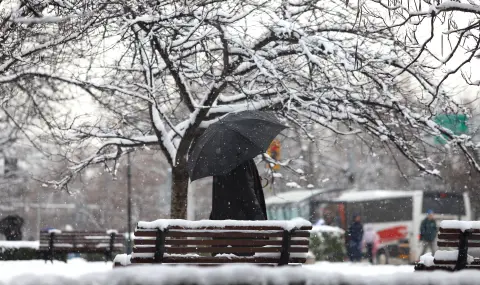Astronomical winter begins today in our country at 11:20, on the day of the winter solstice, the National Institute of Meteorology and Hydrology (NIMH) reported, BTA reported.
The winter solstice marks the shortest day of the year in the Northern Hemisphere and the longest day in the Southern Hemisphere. The sun in Sofia rises today at 7:54 and sets at 16:56. The duration of the day is nine hours and two minutes. The moon is in phase two days before last quarter.
Winter is one of the four seasons in the temperate zone, along with spring, summer and autumn. Astronomically, it begins with the winter solstice - around December 21 in the Northern Hemisphere, and around June 21 - in the Southern Hemisphere.
Winter ends with the spring equinox, which is around March 21 in the Northern Hemisphere and around September 23 - in the Southern Hemisphere. During the winter season, the lowest temperatures are measured, and in regions further from the equator, there is also significant snowfall in winter.
So far, December has been warm in our country, now dynamic weather is coming during the holidays, there will also be precipitation, which will fill part of the filling norms. There will also be snow - some places in the country will welcome the holidays in white. This is expected to be around the Christmas holidays, climatologist Simeon Matev, who is a chief assistant doctor in the department of "Climatology, Hydrology and Geomorphology", announced in an interview with BTA. at the Faculty of Geology and Geography of Sofia University "St. Kliment Ohridski".
"But despite this expected cold snap, December will end with one anomaly for the month, higher than normal, probably about 2 degrees above normal. Long-term forecasts show that we cannot expect many winter phenomena in January and February, however, there are expectations that in January there will be one or two colder periods, during which there will be snowfalls and so-called ice days. For February, the expectations are that it will be warmer than normal, but not as much as last year - by 5 degrees. "Ice days are those in which there are negative temperatures below 0 degrees both during the day and at night," explained Dr. Simeon Matev.
The expectations are that the winter in our country will be warmer, with fewer ice days, with fewer days with snow cover, but there are already children in our country aged 7-8 who have not seen snow thicker than 15-20 centimeters that stays, not just falls and melts. This is a serious indication that the climate has changed and we must take it into account, commented the climatologist from Sofia University.
